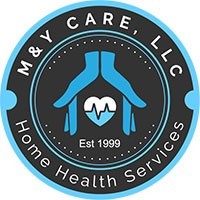Are you considering hiring a home care agency for a loved one? There are many factors to consider in making this decision, and it can be tough to know where to start. Here are some tips to help you choose the right agency for your needs.
Get recommendations
“One of the best ways to find out if an agency is good is by asking for references,” says Tena Kohn, vice president of Home Instead Senior Care, Inc., the world’s largest home care and hospice agency. “References are available on request.”
Consider your loved one’s needs
Consider your own (and/or your loved one’s) physical limitations and capabilities before choosing an agency. For example, if you’re looking for someone who can help with bathing or showering, that might rule out agencies that only provide housekeeping or errands services. If your loved one is resistant to accepting help from others, you may want to go with a smaller community-based agency rather than a large national or global agency.
Check references thoroughly
Before you accept an agency’s offer to send a caregiver over, ask for references from three previous clients. Then, check with all of them to see if the caregivers performed as promised and were on time every day. Kohn says that many agencies will provide their own reference list, but it’s important to look at each one carefully before choosing the right person for your needs. “This is especially critical when your loved one has special needs,” she adds.

See samples of previous work
Caregivers often create photo albums showcasing completed projects such as home organization and decluttering services, yard work and outdoor maintenance, meal preparation and cooking, pet care services, grocery shopping, errands and housekeeping. This gives you an idea of the quality of their work before deciding whether or not to hire them.
Ask about licensing, insurance and background checks
Licensed caregivers are trained to operate medical equipment under supervision, which is extremely important in high-risk cases involving serious injuries or illnesses. It’s also vital that they’re insured for both liability and workers’ compensation—in case something goes wrong while they are working at your home. Finally, if a caregiver has a criminal record (for example, drug charges), it’s best not to hire him/her since you may be liable if he/she does anything illegal while inside your home.
Set up an interview
It’s best to meet with more than one caregiver before making your decision, so schedule interviews with several candidates. This is useful because some caregivers may not show up for the first meeting or may be late, which gives you a chance to reschedule with another candidate. You can also request that different agencies send you their most qualified candidates.
Ask about certification levels and training
Certification levels vary across home care professions; make sure your caregiver has the highest-possible certifications (for example, Certified Nurse Assistant, Certified Home Health Aide) in the right field of expertise (for example, medical/nursing services, personal care services). Ensure that they’ve received ongoing training by asking what staff development opportunities the agency provides.
Is he/she reliable?
When you interview a caregiver by phone, ask about availability and flexibility—can he/she work during evenings and weekends, for example? And find out how long it typically takes for him/her to reach your home in case of emergencies. The best candidates are well-rounded individuals who can take care of daily activities as well as medical emergencies without missing a beat.

Trust your instincts
The single most important factor when choosing an agency is trust: Do you feel comfortable with the caregivers they’re sending over? “If their personality doesn’t fit with yours or your loved one’s, then it will never work,” Kohn says. “You should not settle for anything less than the best fit for your loved one.”
Get it in writing
A contract should clearly lay out all terms of agreement, including specific hours and days of service, types of services provided, equipment used by the caregiver, responsibilities of both parties , payment schedule (including whether or not you’ll be charged for breaks), termination policy and an emergency care plan. Make sure it’s legally binding so that you can hold the agency responsible if there are any issues down the road.
Follow up along the way
Don’t assume everything is okay just because you’ve established a good rapport with your caregiver—check in on him/her to make sure everything is going well (and that he/she doesn’t need anything from you). If problems do arise, call the agency and work it out with them. After all, your loved one’s care is their priority!
Extend services or change caregivers if necessary
If either party is unhappy with the arrangement after a couple of weeks, sit down together to discuss changes that can be made so that everyone is satisfied with the outcome. Keep in mind that these arrangements may evolve over time as your needs change—don’t feel pressured to hire a permanent caregiver until you’re ready . You can always “test drive” an agency for a trial run before committing yourself long-term.

